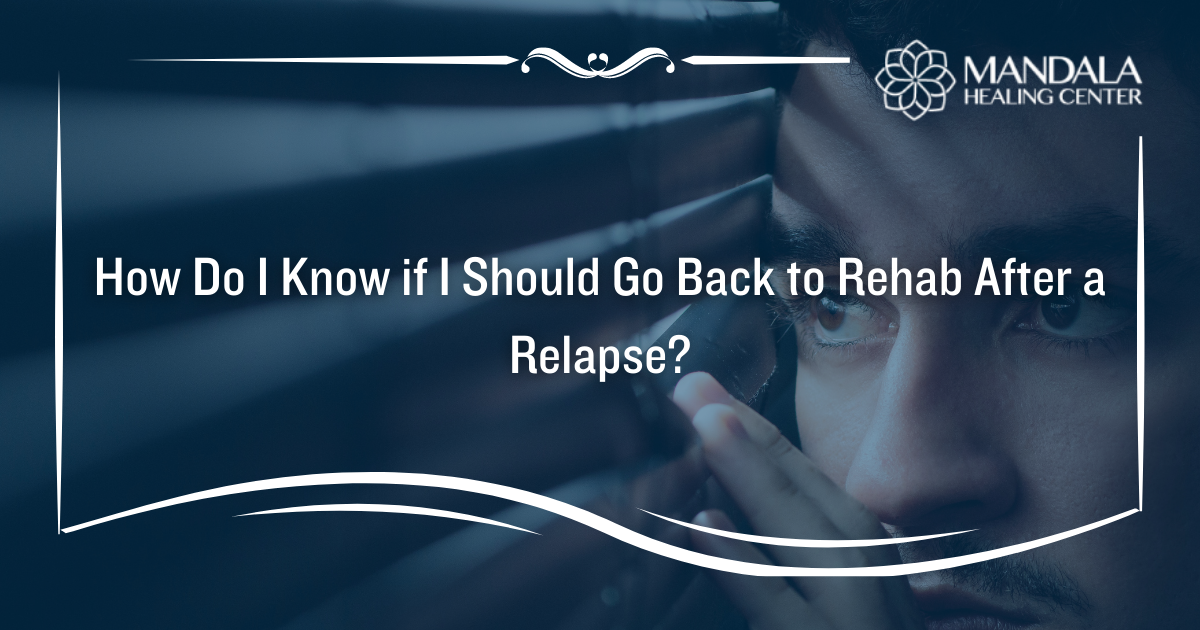You’ve finished an addiction treatment program and are living a new, healthy lifestyle. You feel confident in your ability to remain sober for life and are using the skills you’ve learned in rehab to move towards this goal. And then, suddenly, you find yourself using drugs or drinking again.
Returning to drug use after a period of sobriety can be more dangerous because you have a lower tolerance than you did at the height of your drug use. It can also be hard to understand how this could happen after doing the hard work of going through rehab. You may feel anxious, angry with yourself, or discouraged. Many people wonder if rehab simply didn’t work for them, or have the feeling that they somehow failed.
It is important to know that many people–the majority of people, in fact– experience a relapse in the first four years after completing a rehab program. Research varies, but the consensus is that between 50% and 90% of all people who complete treatment go on to have a relapse in the next four years.[1] Experiencing a relapse is not a failure. Instead, think of it as information that can help you make a new plan. Do you need to attend more meetings? Get more support during a challenging time? Or do you need to go back to rehab?
What you do after a relapse is very important. For some people, having a relapse is an indication that they need to get more treatment. For others, it might simply be part of their journey with recovery. You must know how to make this important decision so that you can stay on track toward your goal of lifelong recovery from addiction.
Understanding the Difference Between a Slip and a Relapse
Not all instances of using drugs after completing rehab are the same. In some cases, using drugs again may just be a “slip” and not a true relapse. Knowing the difference between a slip and a relapse can help you decide if you need to go back to rehab.
Slip
A slip is usually defined as using drugs or drinking for only one day, or one time. For instance, you may “slip” and have a drink at a party or use drugs while out with friends. The way you respond to this can tell you a lot. Are you immediately aware that you have slipped up? Do you instantly regret it? Recognizing the seriousness of what happened is important and indicates that you are still committed to recovery.
If you have a one-time slip, you do not necessarily have to return to rehab. Go to a meeting, talk with your sponsor, and be open and honest with your support system. It could mean that you need to check in with yourself about what you are–and are not–ready to be doing. Don’t beat yourself up. Learn from the slip and get the support you need.
Relapse
A relapse is generally defined as a period of drug or alcohol use that lasts more than a day. During a relapse, people tend to isolate or be secretive, skip meetings or other recovery-related activities, and may not be aware or in control of what they are doing for a period of days or weeks. If you find yourself using for days or weeks at a time, it is a sign that you probably require more time in treatment. Returning to rehab after relapse can be difficult, but it is the right next step so that you can work towards your goal of lifelong sobriety.
Why Should I Go Back to Rehab After Relapse?
Some people wonder why they should return to rehab after relapse and may feel discouraged that they “failed” after their first attempt. While feeling like this is natural, it is important to keep in mind that most people who go through rehab end up having at least one relapse. Going through a relapse is not a sign that treatment didn’t work. It simply means that you were not fully prepared for some aspect of post-rehab life and need more support and treatment.
Returning to rehab after relapse gives you a chance to begin a treatment program with more information. You can identify what led to the trigger and learn the skills to help you avoid returning to drug use the next time. Using what you’ve learned from the relapse can help make your next treatment program even more meaningful and effective.
Learn More About Rehab After Relapse at the Mandala Healing Center
If you or someone you love requires addiction treatment after a relapse, you are not alone. The compassionate staff at the Mandala Healing Center understands that the journey of recovery from addiction can follow many winding paths. That is why we offer a range of relapse prevention programs that can be tailored to meet your unique needs and support every part of you.
If you are ready for life-changing treatment, do not wait another day. We are here to help you overcome addiction. To learn more about our programs or to talk to an admissions counselor, call now.
References:












